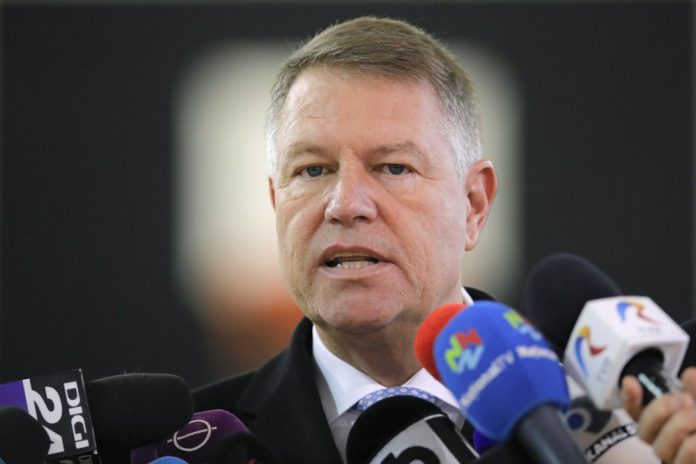
by Nicolae Dumirache, AP
BUCHAREST, Romania (AP) — An exit poll published in Romania on Sunday after the close of voting stations shows incumbent Klaus Iohannis easily winning a second term in the country’s presidential election.
Iohannis, a conservative, was facing Social Democratic Party leader Viorica Dancila, a former prime minister, in the runoff vote.
An exit poll by the IRES independent think tank showed Iohannis getting 66.5 % of the votes, with 33.5% for Dancila. In the first round two weeks ago, Iohannis won 37.8% and Dancila 22.2%. The exit poll has a margin of error of 2 percentage points. Official preliminary results were expected late Sunday.
Iohannis has vowed to continue his efforts to fight corruption and strengthen the rule of law in this country of around 19.4 million people.
“I voted for a modern Romania, a European Romania, a normal Romania,” Iohannis said after casting his ballot. “I invite you all to come out and vote.”
For her part, Dancila promised “more involvement, work and commitment to the Romanian people.”
Dancila’s government was ousted on Oct. 10 after losing a confidence vote in parliament. It had been embroiled by allegations of corruption and criticized by the European Union for judicial reforms seen as compromising the rule of law and the independence of judges.
Earlier this month, lawmakers backed a minority government led by Prime Minister Ludovic Orban of the National Liberal Party, formerly headed by Iohannis.
Iohannis has clashed often with Dancila and her party over the judiciary reforms and other legislation. Opponents and critics worried about the dilution of anti-corruption laws which in the past few years led to the indictment of dozens of Cabinet members, lawmakers and even a Romanian member of the European Parliament.
Public outrage has also resulted in frequent, massive anti-corruption protests in Bucharest and other cities.
With their shared ideological roots and values, Iohannis and Orban would be expected to work together to boost the anti-graft measures.
Though lacking an executive role, Romania’s president has significant decision-making powers, including on matters of national security and foreign policy. Elected for a five-year term, the president can also reject party nominees for prime minister and government nominees for judicial appointments.
Romania, a member of the EU since 2007, is plagued by widespread poverty with over 25% of its population living on less than $5.50 a day, according to a World Bank study last year. Recent figures pointed to slowing economic growth, though the annual rate of 3% percent achieved in the third quarter of the year was still among the fastest in Europe.
Iohannis rejected Dancila’s offers to hold debates ahead of the runoff vote, but earlier this week he took questions from analysts and journalists at a Bucharest university.
Romanians living abroad, estimated to number around 4 million, started casting their votes on Friday at hundreds of polling stations, including in Italy, Britain, France, Australia and the U.S. Romanians abroad also have the option of mailing in their ballots.



